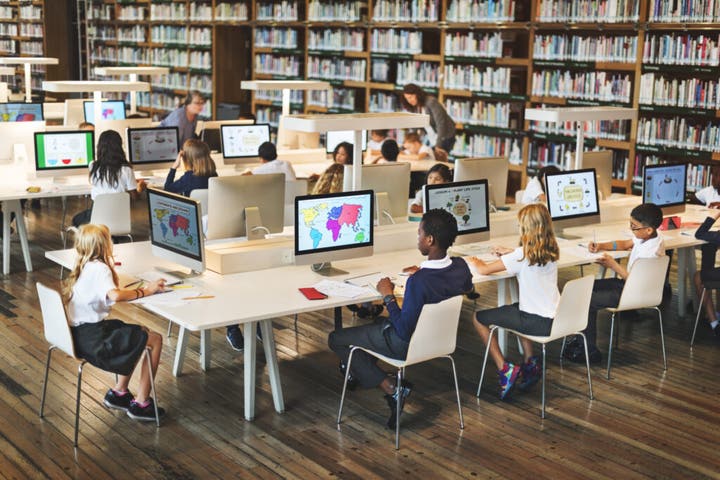
Summer may be just getting underway, but plenty of parents are already planning their spending for the upcoming school year.
Nearly 75% of parents plan to spend the same or more on back-to-school shopping this year, a consumer survey from PwC found. And more than one in three parents actually plan to spend more this year than they have previously.
Economic uncertainties and the effects of the tariffs had many experts uncertain as to whether or not back-to-school shopping would drop sharply this fall. But PwC's findings seem to indicate that inflationary fatigue won't curb demand after all.
Don't Miss:
- Maximize saving for your retirement and cut down on taxes: Schedule your free call with a financial advisor to start your financial journey – no cost, no obligation.
- Named a TIME Best Invention and Backed by 5,000+ Users, Kara's Air-to-Water Pod Cuts Plastic and Costs — And You Can Invest At Just $6.37/Share
"A lot of it is necessities. It's people knowing that they're going to have to get this specific book, or these specific supplies for school or they require technology for their kids," PwC Global Retail Leader Kelly Pedersen told CNBC. "This is just a necessary spend."
However, anxiety about the impacts of tariffs hasn't entirely dissipated. "A lot of the average consumers in the U.S. sort of feel this cloud hanging above of, when are the tariffs going to hit, and what are those going to do to prices," Pedersen said.
Several popular back-to-school retailers, like Walmart (NYSE:WMT) and Target (NYSE:TGT), have said they plan to raise prices as a result of the tariffs. "We will do our best to keep our prices as low as possible. But given the magnitude of the tariffs, even at the reduced levels announced this week, we aren’t able to absorb all the pressure given the reality of narrow retail margins, Walmart CEO Doug McMillon said on an earnings call in May.
Trending: Tired of Grid Failures and Charging Deserts? This Startup Has a Solar Fix and $25M+ in Sales — Now Raising at $3/Share
Similarly, in the company's Q1 earnings call, Target CEO Brian Cornell said that price increases may happen, but that they would be a "very last resort" as the company's primary goal remains "supporting American families as they manage their budgets."
PwC also cautions that the mid-May tariff rollback, which fueled a rush of exports from China, may cause uneven inventory availability. However, it remains optimistic that retailers will have remedied these supply chain concerns by the time back-to-school shopping is in full swing.
For parents looking to save money this fall, prioritizing discounts and shopping early are the two most common methods for cutting costs. Reusing items and cutting back in specific categories like technology and clothing are also popular strategies.
The study also found that one in five parents plan to use AI tools to help them discover the best deals on back-to-school items. "This helps create a growing imperative for retailers to enhance their digital channels and search visibility for AI-powered discovery," the report said.
Read Next:
- Invest early in CancerVax's breakthrough tech aiming to disrupt a $231B market. Back a bold new approach to cancer treatment with high-growth potential.
- Many are using retirement income calculators to check if they’re on pace — here’s a breakdown on what’s behind this formula.
Image: Shutterstock







